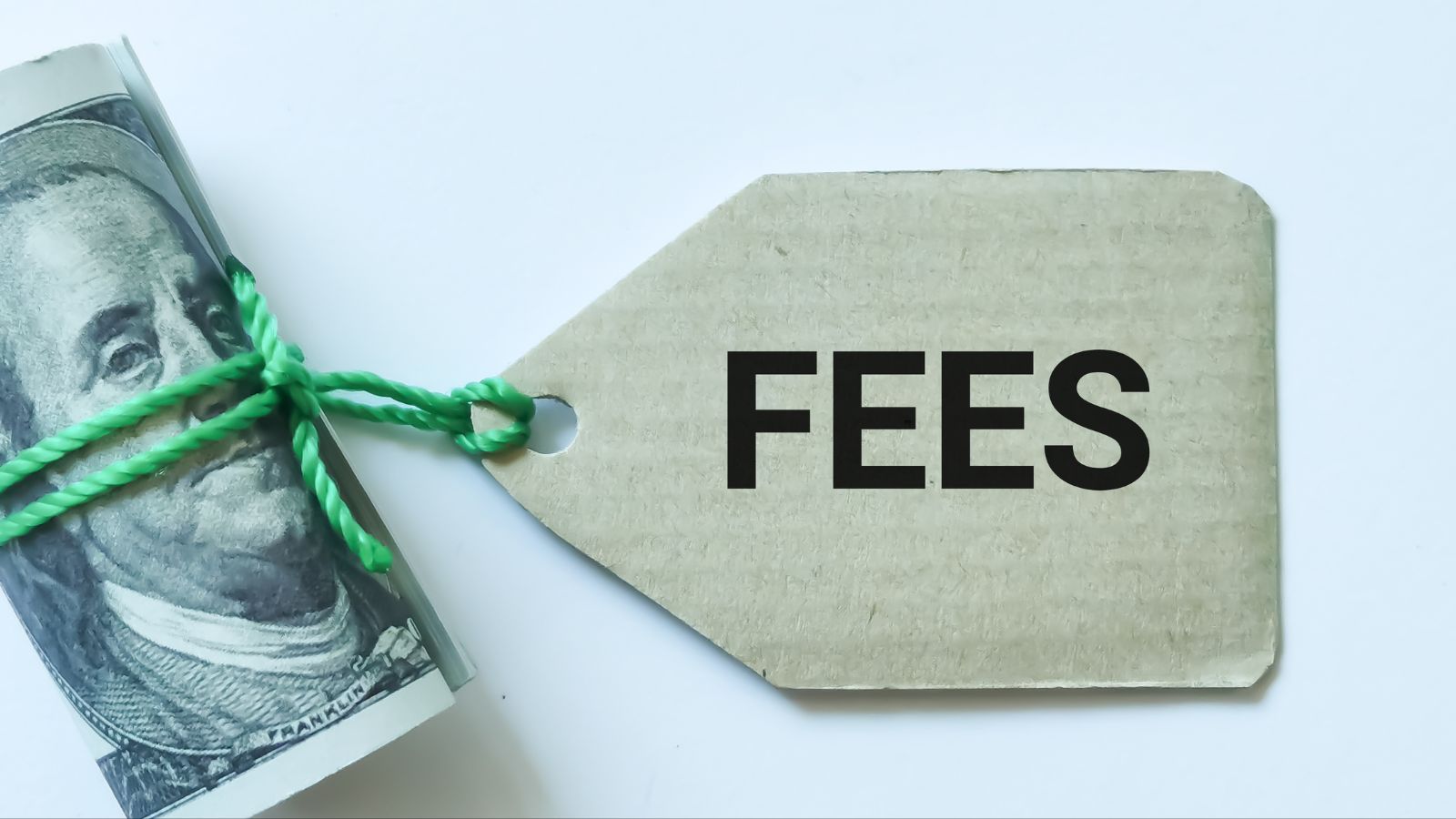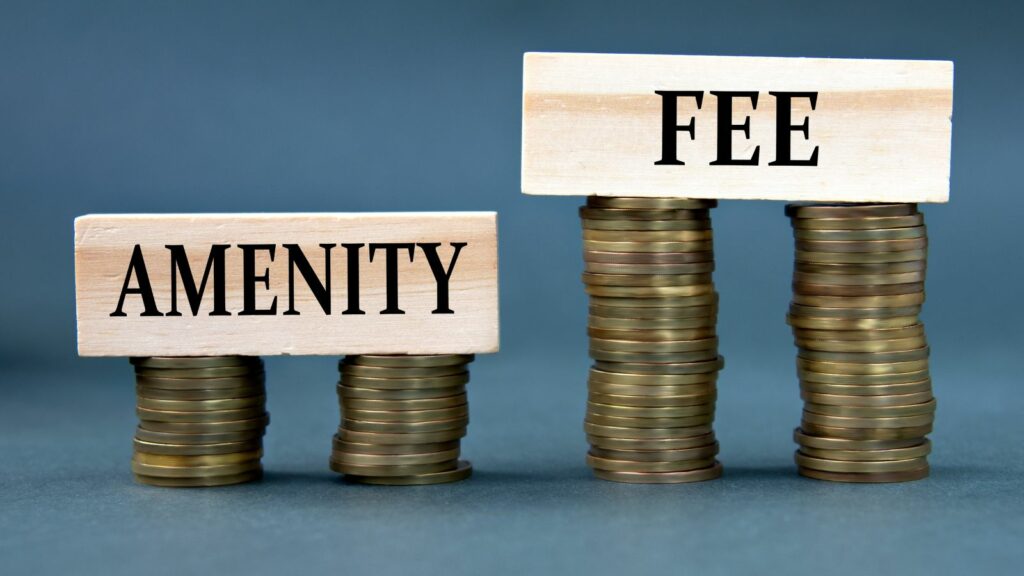Navigating your finances in today’s world can sometimes feel like walking through a maze. Every turn brings a new surprise—some pleasant, many not so much. It’s easy to feel overwhelmed by the hidden fees and sneaky charges that, over time, slowly drain your bank account. In this article, we’re going to explore 27 common financial traps that many Canadians fall into without even realizing it.
The Sneaky Cost of Credit Card Interest

Imagine this: you use your credit card for everyday purchases. And before you know it, you’re carrying a balance month after month. The interest on that balance isn’t just a small extra cost—it can balloon over time, turning minor purchases into a hefty debt. Instead of feeling like you’re just borrowing money, you’re paying a premium for the convenience.
What to do: Make it a goal to pay off your full balance every month. If that’s not possible, look for balance transfer offers with lower interest rates to reduce the burden.
Overdraft Fees: When a Simple Mistake Costs a Lot

Overdraft fees are like hidden landmines. A small oversight—spending just a little more than what you have in your account—can trigger a fee that chips away at your savings. Over time, these fees can add up to a significant amount, leaving you frustrated and poorer than before.
Friendly advice: Keep a close eye on your account balance and set up text alerts or app notifications. You might even consider linking your checking account to a savings account that can automatically cover any shortfalls.
Hidden Banking Fees: The Invisible Thieves

Have you ever looked closely at your bank statement and wondered why your balance seems lower than expected? Banks often charge monthly maintenance fees, transaction fees, and other service charges that might not be clearly explained when you first open your account. These fees can sneak up on you and slowly diminish your funds.
Tip: Spend some time reading through your account’s terms and conditions. Don’t hesitate to shop around for accounts that offer low or no fees.
Annual Credit Card Fees: When Rewards Aren’t Worth It

Many credit cards come with enticing rewards programs—cashback, travel points, or exclusive perks—but they often come at a price. Annual fees on premium cards can be steep, and if you’re not using those rewards to their full potential, you might end up paying more than you should.
Real talk: Evaluate whether you’re getting your money’s worth. Sometimes, a simpler, no-fee card is a better fit for your everyday needs.
Low-Interest Savings Accounts: The Slow Drain

We all want a safe place to park our money, and a traditional savings account seems like a great option. However, when the interest rate is so low that it barely keeps up with inflation, your money’s buying power gradually slips away.
Suggestion: Consider diversifying your savings with higher-yield options that still keep your money relatively safe. Even a slight improvement in your interest rate can make a big difference over time.
Investment Management Fees: The Cost of “Expert” Advice

Investing is a key component of long-term financial health. However, high management fees on mutual funds or managed portfolios can quietly erode your gains. Even small percentage fees can compound over decades, meaning that you might end up with significantly less than you expected when you retire.
Personal tip: Look into low-cost index funds or ETFs. They often provide broad market exposure at a fraction of the cost of actively managed funds, letting more of your money work for you.
Mortgage Prepayment Penalties: When Paying Off Early Isn’t Free

Paying off your mortgage ahead of schedule sounds like a dream, but some lenders impose prepayment penalties that can eat into your savings. These fees can cut the financial benefits of an early payoff, leaving you with less flexibility.
Advice: Before you commit to a mortgage, ask about any potential prepayment penalties. If you already have a mortgage, it might be worth discussing refinancing options with your bank.
ATM Fees: Small Changes, Big Impact

It might seem harmless to withdraw cash from an out-of-network ATM, but each time you do, you could be hit with a fee. These fees can add up, especially if you’re someone who frequently needs cash.
Quick fix: Plan and try to use ATMs that belong to your bank’s network. Many banks also offer cashback options when you make a purchase, which can be a smart alternative to withdrawing cash.
Foreign Transaction Fees: When Currency Conversions Cost You

Foreign transaction fees can sneak into your bill whether you travel abroad or shop online from international retailers. Every time you convert your Canadian dollars to another currency, you might be paying extra fees that chip away at your total spending power.
Recommendation: Look for credit cards that waive foreign transaction fees. These cards can make international purchases much more cost-effective.
Subscription Creep: The Silent Accumulator

In today’s digital age, it’s incredibly easy to sign up for a variety of subscriptions—streaming services, apps, memberships—and then forget about them. Over time, these recurring charges can build up to a surprisingly large monthly expense that you barely notice until it’s too late.
Simple solution: Set aside time once a month to review your subscriptions. Cancel the ones you no longer use and consolidate services where possible.
Insurance Premium Increases: Don’t Overpay for Protection

Insurance is essential for protecting your assets and health, but many Canadians end up paying more than necessary. Whether it’s auto, home, or life insurance, failing to compare providers or bundle policies can result in higher premiums over time.
Friendly reminder: Every year, review your insurance policies. Get quotes from different companies and see if you can negotiate a better rate with your current provider.
High Expense Ratios on Mutual Funds/ETFs: The Hidden Investment Drag

Even if you’re diligently investing for the future, high expense ratios on your mutual funds or ETFs can slowly drag down your overall returns. It might not seem like much initially, but over decades, these fees can cost you dearly.
Advice: Consider low-cost alternatives like index funds, and be sure to ask your financial advisor about the fees you’re paying relative to the benefits.
Poorly Negotiated Loans: When Borrowing Costs More Than You Think

Taking out a loan should be a carefully considered decision, but sometimes the terms aren’t as favorable as they appear. Hidden fees, high processing charges, and unfavorable interest rates can make a seemingly good loan a real money drain.
Tip: Always read the fine print and compare loan offers. Don’t be afraid to negotiate better terms or walk away if something doesn’t feel right.
Late Payment Penalties: The Cost of Missing a Due Date

Life gets busy, and it’s easy to forget a bill here or a payment there. However, missing due dates can result in late fees and higher interest rates, which strain your budget and hurt your credit score.
Tip: Set up automatic payments or calendar reminders. A small bit of organization can prevent a lot of unnecessary charges.
Inactivity Fees: When “Not Using” Costs You Money

Some accounts come with a hidden catch: if you don’t use them enough, you’ll be charged an inactivity fee. It’s a subtle reminder from some banks that simply letting your money sit there without activity can be costly.
Solution: If you have an account that charges inactivity fees, try to keep a few small transactions going, or consider switching to an account that doesn’t penalize you for not using it regularly.
Foreign Exchange Losses: The Hidden Cost of Currency Conversion

For those who deal with multiple currencies—whether for travel, international shopping, or business—the process of converting money can incur extra costs. Small fees or unfavorable exchange rates can, over many transactions, really add up.
Tip: Keep an eye on exchange rates and consider using financial services that offer competitive rates without extra fees.
Underutilized Rewards Programs: Missing Out on Free Money

Many credit cards and banks offer rewards programs that give you points, miles, or cash back on your spending. However, if you don’t redeem these rewards effectively, you might be missing out on savings that could have helped offset some of your costs.
What to do: Take the time to understand your rewards program and set up a plan to redeem points or cash back before they expire.
Impulse Buying with “Buy Now, Pay Later” Options

“Buy now, Pay Later” plans can make expensive purchases feel more manageable, but they can also lead to overspending. It’s easy to lose track of how much you’re spending when payments are deferred.
Advice: Treat these services with caution. Make sure that any purchase fits within your budget, and always plan for the eventual payments.
Unnecessary Financial Products: The Cost of Redundancy

Sometimes, we end up with more financial products than we need. Multiple bank accounts, overlapping insurance policies, or redundant investment products can all come with fees that drain your money without providing extra benefits.
Suggestion: Take a good look at all the financial products you own. Consolidate or cancel those that don’t add distinct value to your overall financial strategy.
High Fees on Financial Advice: When Expert Help Comes at a Price

There’s no doubt that expert financial advice can help you make smarter decisions, but sometimes the fees for that advice are too high, negating some of the benefits.
Tip: Look for advisors who offer transparent, reasonable fee structures. In some cases, fee-only advisors or even robo-advisors can provide valuable insights at a lower cost.
Poor Retirement Planning: A Recipe for Future Regret

Retirement might seem far away, but not planning adequately for it can have serious consequences. Whether you’re using RRSPs, TFSAs, or other investment vehicles, misunderstanding the rules or failing to optimize your contributions can lead to a much smaller retirement nest egg than you planned for.
Advice: Work with a trusted financial planner to craft a retirement strategy that takes full advantage of tax benefits and aligns with your long-term goals.
The Passive Income Tax Trap

For those who run incorporated businesses, this can be particularly painful. When your corporation earns passive income—say, through dividend stocks, high-yield savings, or rental properties—that money can be taxed at a rate far higher than your active business income. In many cases, more than half of that passive income might vanish in taxes, leaving you with less money to reinvest or use personally.
Real-life note: Many Canadian entrepreneurs have discovered that the passive income tax trap was draining their corporate earnings. Working with a tax specialist to explore strategies like alternative investment vehicles or even specific insurance products can help reduce this tax burden significantly.
Expense Ratios on Managed Portfolios

If you’re investing through managed portfolios, be aware that the fees you pay—called expense ratios—can eat into your returns. These fees might seem small, but they compound over the years and can significantly lower your net gains.
Tip: Regularly review the fees associated with your investment funds and consider lower-cost alternatives if you find that the fees are too high.
Overcomplicated Financial Products

Sometimes, financial products are so complex that they hide costs in layers of fees, conditions, and fine print. Products like certain annuities or structured investments may promise high returns. However, the benefits can quickly vanish when you factor in all the hidden charges.
Friendly advice: Keep it simple whenever possible. Choose financial products that are straightforward and transparent so you always know what you’re paying for.
Automated Expense Drift

In our busy lives, it’s all too easy to let small, recurring expenses slip by unnoticed. Whether it’s an app subscription you forgot to cancel or a digital service that you no longer use, these minor charges can slowly add up and drain your bank account without you even realizing it.
What to do: Periodically audit your bank statements or use a budgeting app that highlights recurring charges. It might be time to cancel those subscriptions you no longer need.
Penalties for Early Withdrawal

Many of us invest in products like Guaranteed Investment Certificates (GICs) or certain retirement accounts that come with penalties for early withdrawal. These penalties are designed to keep your money invested for a set period. However, breaking these investments can cost you dearly if you need access to funds in an emergency.
Tip: Build an emergency fund in a more accessible account so you aren’t forced to dip into your long-term investments and face those penalties.
Failure to Compare Rates and Fees

One of the simplest yet most effective ways to save money is to compare what different banks and financial institutions offer. Whether it’s for a savings account, mortgage, loan, or investment product, failing to shop around can mean you’re paying more than you need to.
The final piece of advice: Regularly review your financial products. Don’t settle for the first option you come across—take a few minutes each year to compare rates and fees and switch providers if you find a better deal.
Conclusion

For many Canadians, these pitfalls are part of the everyday financial landscape. Whether it’s the invisible drain of overdraft fees, the slow loss of value from low-interest savings, or the shocking tax hit on passive income earned by incorporated businesses, being unaware of these traps can leave you feeling frustrated and helpless.
The key to overcoming these challenges is awareness. By regularly reviewing your financial products, scrutinizing bank statements, and asking tough questions about every fee and charge, you empower yourself to make better choices. Remember, money management isn’t just about earning more—it’s about keeping more of what you earn.
20 Reasons Why Wealthy Investors Are Looking At The Caribbean

The Caribbean has long been known for its stunning landscapes and vibrant culture, but in recent years, it has also become an attractive destination for wealthy investors. The region offers numerous financial, economic, and lifestyle advantages that appeal to high-net-worth individuals seeking opportunities. Here are 20 reasons why the Caribbean has captured the attention of the global investment community.
20 Reasons Why Wealthy Investors Are Looking At The Caribbean
